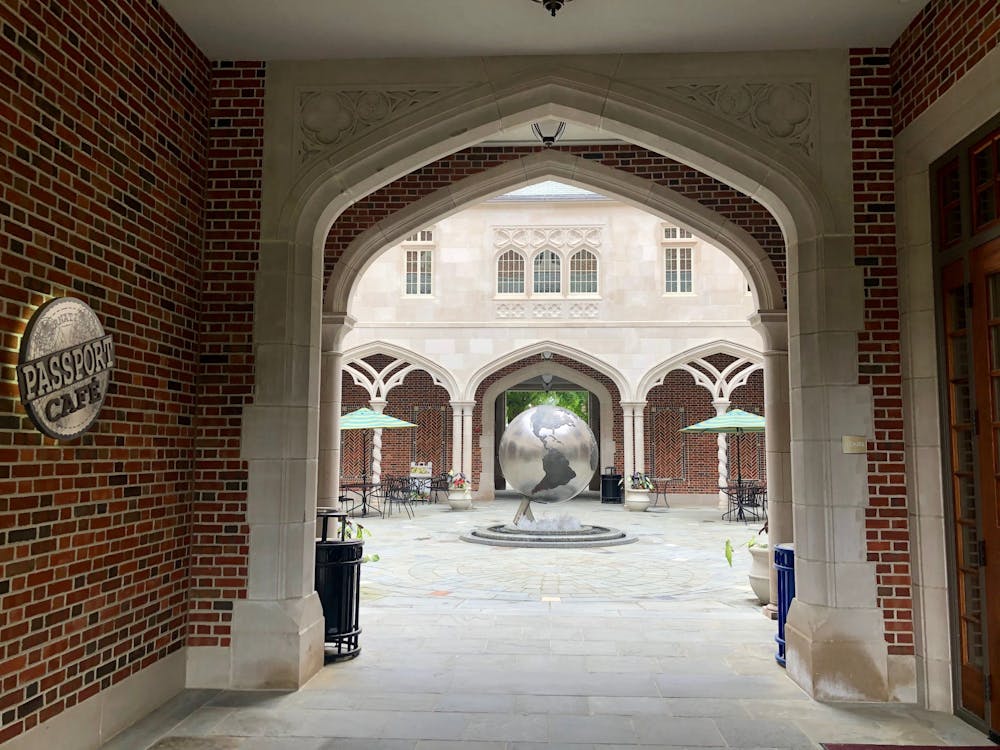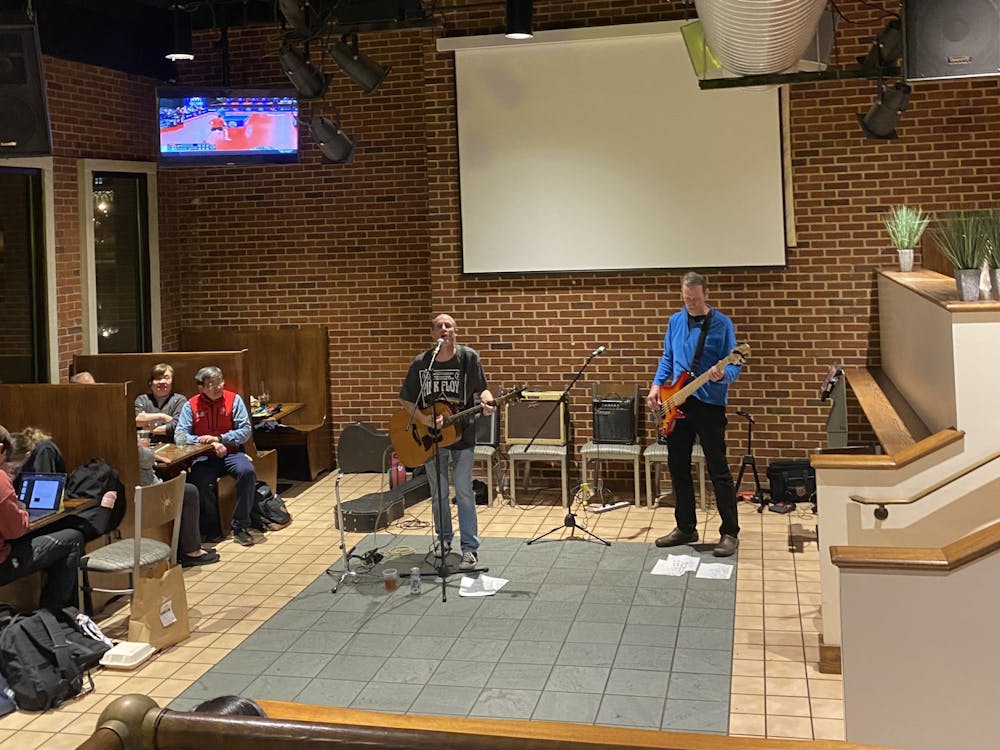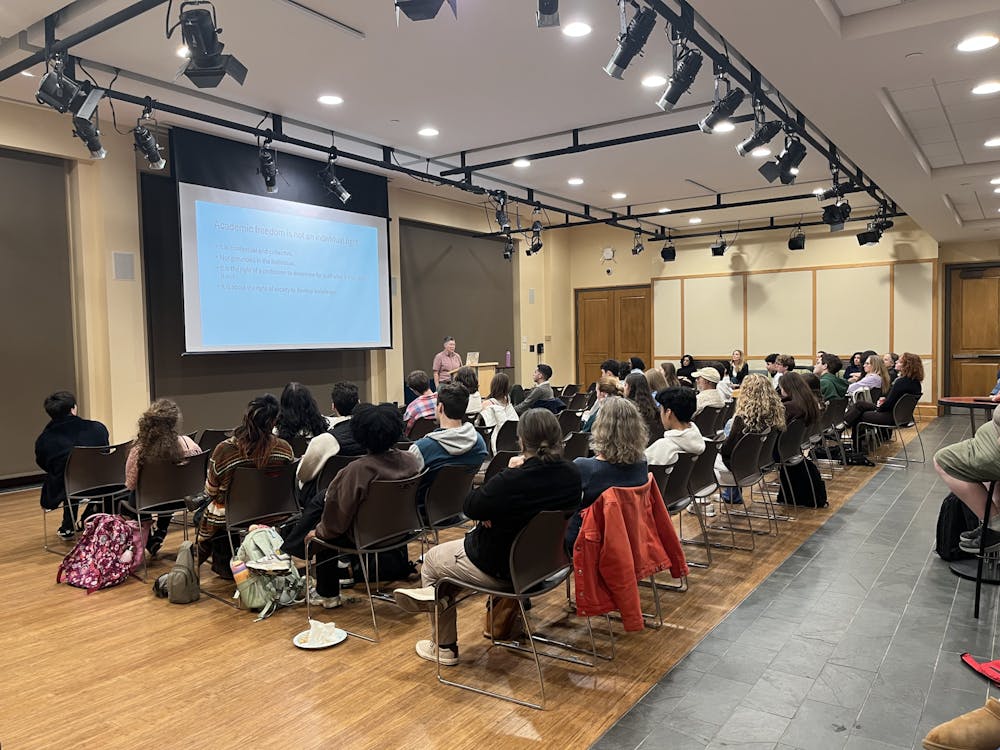Although moving off-campus and adjusting to online classes was challenging for most students at the University of Richmond, international students faced the additional time-sensitive decision of whether to return to their home countries, amidst growing travel restraints, or to find another housing alternative in the U.S.
An application form for international students and other students with extenuating circumstances to request to remain in campus housing was included in a March 11 email sent by UR President Ronald A. Crutcher that announced UR's move to distance learning.
Three other applications were subsequently sent out throughout the spring semester to attempt to cut down the number of students hosted on campus.
Mir Sultan, a '20 graduate, was born in India and his family currently lives in the Philippines, so going home was not an immediate option because the Philippines wasn't allowing international flights into the country, Sultan said. He has been staying in campus housing since March, he said.
“I have friends who attend other prestigious schools in the U.S. and they weren’t offered any alternatives but to move out,” he said. “In that regard, UR has really stepped out and helped us out.”
For some international students, returning home was not the safest because of health concerns, especially in countries where citizens are at a higher risk of infection in developing countries, Sultan said.
“Especially for someone like me, who has family in India and the Philippines, they’re glad I’m staying here and not at home,” Sultan said.
Although Sultan and other international students have remained on campus, other students chose to make plans to return home or find other housing options in the U.S.
Rena Xiao, a '20 graduate, remained on campus during the extended break from classes in March, but chose to fly to Seattle and stay with family rather than return home to China after an email was released by housing regarding a second extended housing application process, she said.
Xiao, who was born in the U.S. but has lived in China with her family since she was four years old, does not have to worry about being able to return to the U.S. from China because of her U.S. citizenship.
However, she is concerned about eventually returning to China because of its strict border policies and international flight regulations surrounding COVID-19, she said.
“After my second extension for campus housing, I was informed that I would have to leave by March 28,” Xiao said. “My dad had signed a petition to President Crutcher requesting that all Chinese students be allowed to stay on campus because getting back to China was complicated with flights and visa issues.
Enjoy what you're reading?
Signup for our newsletter
UR couldn’t support all of its Chinese students on campus and sent back a list of options, which included discounted rates at local hotels and available apartments nearby, she said.
Xiao decided to stay in Seattle with her aunt because of complications with finding connecting and affordable flights and Chinese international-traveler restrictions, which would have prevented her from entering with her U.S. citizenship, in light of COVID-19, she said.
UR administration's decisions and plans addressing COVID-19, in regard to housing some international students and moving to distance learning, were thought out given the severity of COVID-19, Xiao said.
Ani Laliashvili, a rising senior from the country of Georgia, returned home when UR administration made its first announcement about extending spring break because of COVID-19 concerns.
“I could have stayed on campus, but I didn’t know when the [U.S.] borders would be opened and flights were going to resume, and whether housing was going to be provided in the summer,” Laliashvili said. “I felt that it would be better to be stuck at home rather than so far away from my home, but I’m still not sure if I made the right decision."
Xiao and Laliashvili both said that readjusting to different time zones in the middle of the spring semester had been difficult for international students who had chosen to return home.
“A lot of students didn’t know if professors would still have live classes,” Laliashvili said.“I had a lot of friends at different schools who were awake at 2 a.m. I only had one live class at 8 p.m., but my professor was really accommodating.”
Although she was not busy during the day, not finishing class until 9 p.m. in Georgia was tiring, Laliashvili said.
International students who returned home also initially faced concerns over their student visas expiring early.
“On our visa, it’s listed that we have to attend classes in person, but they made a modification because of COVID-19," she said.“We were allowed to attend online classes for the rest of the semester without any implications, and we were allowed to leave the U.S.”
However a student visa still incurs an I-901SEVIS Fee if students are outside of the U.S. for more than five months, Laliashvili said. An I-901 SEVIS Fee is paid by any student from countries where a visa to travel to the U.S. is mandatory, according to the Department of Homeland Security's website. The fee must also be paid if a student has incurred a visa status violation after being out of the U.S. for more than five months, as Laliashvili pointed out.
“That SEVIS fee might pose a concern to some students, but I haven’t heard of an update on whether that is still in place,” she said.
Concerns over visa status extends beyond current students at UR.
“A lot of [graduated] seniors also cannot apply for work visas right now if they are currently outside the U.S.,” she said.
Given the circumstances and the amount of stress that offices on campus such as the Office of International Education, Office of Residence Life and Undergraduate Student Housing and Westhampton Dean's Office were working under, the offices were all still helpful resources for students, Laliashvili said.
Contact lifestyle editor Emma Phelps at emma.phelps@richmond.edu.
Support independent student media
You can make a tax-deductible donation by clicking the button below, which takes you to our secure PayPal account. The page is set up to receive contributions in whatever amount you designate. We look forward to using the money we raise to further our mission of providing honest and accurate information to students, faculty, staff, alumni and others in the general public.
Donate Now



